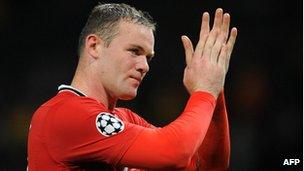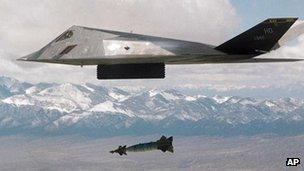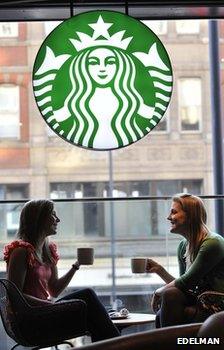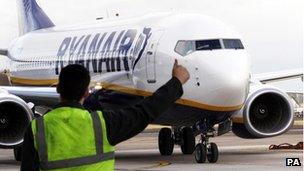Wayne Rooney and a decade of .uk domain name disputes
- Published

The change in ownership of waynerooney.co.uk was considerably cheaper than most football transfers
The battle for Wayne Rooney reached its climax in October 2006.
Huw Marshall, a resident of Wrexham in North Wales, was pitted against Stoneygate 48, a company set up by the Manchester United player to exploit his name and image rights.
Mr Marshall had registered the domain name waynerooney.co.uk in April 2002 after seeing the footballer play for Everton FC's youth team.
"I thought he was a striking new talent and... had the idea of setting up a non-commercial fan site," Mr Marshall said.
However, he never got to grips with the technology and when the footballer moved to Manchester United, Mr Marshall lost interest in the idea.
Four years later, Wayne Rooney's company decided it wanted the web address.
Its lawyers contacted Nominet, the organisation which manages .uk domain names and requested the transfer. Mr Marshall refused.
So for the 3,884th time in its short history, the body's dispute resolution service went to work.
Rather than resolve such matters itself or leave it to the courts, Nominet refers disputes to a group of independent experts.
Using a cab-rank system, it assigns each case to whichever member is next on the list, after checking there is no conflict of interest.
If either side wishes to challenge the judgement, a further three experts form an appeals panel and issue a final ruling.
The Wayne Rooney case was relatively easy to resolve.
Mr Marshall was ordered to transfer the site because he had not shown any intention of using it after several years of ownership.
He decided not to risk the £3,000 plus VAT that he would have had to pay if he had pursued, and lost, an appeal.
A decade of decisions
Fast forward to November 2011 and Nominet's dispute resolution service is celebrating its tenth anniversary.
Over that time the number of cases has spiralled to over 10,250 - and brand owners have not always been victorious.
"It is true that this is a service for the trademark owners, but they have to prove their case," says Nominet's senior legal counsel, Nick Wenban-Smith.
"And if they can't prove it, they will lose. So the burden of proof is on the complainant."
Mastercard learned this to its cost when it tried to take ownership of maestro.co.uk for its debit card arm in 2006.
The website was owned by Mark Adams, a domain name dealer who had also registered goldenarches.co.uk, bigbrothertv.co.uk and beverlyhillscop.co.uk among others.
When contacted Mr Adams said he "would only consider selling it for an exceptional offer".
"You have to do two things to win," says Mr Wenban-Smith.
"The first is a rights test - you need to show you have legally enforceable rights. It's a broad definition based on evidence such as trademarks.
"The second is whether the existing web address is an abusive registration.
"We are looking to see if the owner is taking unfair advantage of the other company's rights."
Mastercard passed the first hurdle but stumbled at the second.

Lockheed Martin's Skunk Works division has worked on some of the US Air Force's most famous aircraft
The expert ruled that "maestro" was a generic name based on an Italian word, and Mr Adams had done nothing to disrupt Mastercard's business.
"It is for the complainant to prove that the registration is abusive, not for the respondent to disprove it," the adjudicator wrote. The decision was upheld on appeal.
Skunkworks
Lockheed Martin also came unstuck when it challenged a "smoking paraphernalia" and lifestyle accessory retailer.
The defence firm set up an R&D wing named Skunk Works in California in the 1940s. It became famous for developing aircraft including the U-2 spy plane and the F-117 Nighthawk stealth fighter.
Just over 60 years later a small chain of shops called UK Skunkworks branched into internet sales with a web address using its name.
It did not take long for the US firm to demand that Nominet transfer the domain name.
Lockheed Martin claimed internet users were "highly likely to mistakenly assume" the web address was associated with its operations and argued they might take their business elsewhere after seeing UK Skunkwork's goods.
But the store owners issued a tongue-in-cheek defence retort: "We do not sell or offer military services, stealth bombers, yo-yos, [or] decorations for Christmas trees."
The expert assigned to the case agreed there was little chance of confusion, and ruled against a transfer. Lockheed Martin appealed and lost again.
"The shop owner had never heard of the American firm and said he wasn't happy with being associated with an arms dealer," Mr Wenban-Smith says.
"The appeal panel said a sense of humour might have been appropriate."
Coffee clash

Starbucks did not like what it found on the original starbucks.co.uk site
Many cases do, however, go in favour of big business.
In 1992 a couple with the surnames Starker and Bucknell were married and began a family newsletter dubbed the "StarBuck Times".
When their brother-in-law subsequently registered the starbucks.co.uk domain name, he set up a clash with the world's biggest coffee chain.
The firm became aware of the site in 1999 shortly after starting to trade in the UK. It was dismayed to find the webpages carried negative stories about its business and the company lodged a complaint with Nominet.
The brother-in-law claimed the material had been posted "by a hacker", and removed it.
However Nominet's expert said that as the site's owner he was responsible for its content, and gave Starbucks ownership of the domain name.
Ryanair
A decision against the original owner of the ihateryanair.co.uk website in 2010 was a closer run affair.
The site gathered negative stories and complaints about Europe's biggest budget airline.
After the carrier complained, Nominet appointed expert Jane Seager to the case.
She quickly ruled that the airline had won the rights test on the basis that its trademark had been used, even though there was little chance anyone would have believed the Irish company had been running the site.
That meant her ultimate judgement hinged on whether she agreed the registration was also abusive.
Ryanair not only had to prove the site was disruptive to its business, it also had to show that the disruption was "unfair".
"In a free and open society internet users should generally be able to post comments on their recent experience or on current events, as long as such postings do not fall foul of the law," Ms Seager wrote at the time.

Ryanair's efforts to take control of a critical website made newspaper headlines
The site's owner, Robert Tyler, might have won the case had he not decided to take advantage of his site's popularity.
He had added adverts including links to a travel insurance firm and a foreign exchange provider. The airline offered rival services.
Ms Seager ruled this "unfair" on the basis that Mr Tyler had used the Ryanair name to attract traffic to his site, and had then profited at the carrier's expense.
"This case quite literally turned on the respondent's receipt of £322," wrote Ms Seager, adding that it was "with some regret" that the domain name should be transferred.
However, the matter did not end there. Mr Tyler moved his content to a domain name which was not managed by Nominet.
"I switched the website to the new domain at www.ihateryanair.org before the press got hold of the story," Mr Tyler told the BBC.
"Newspapers then linked to the new website at which point the traffic went through the roof."
- Published30 September 2011
- Published11 February 2011
- Published11 May 2010